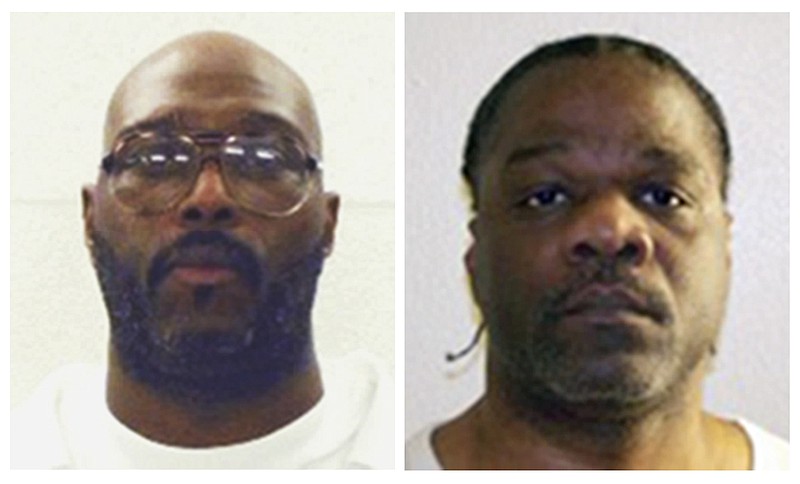LITTLE ROCK - Arkansas prepared again today to conduct its first executions since 2005, wary and weary after a series of court decisions gutted its unprecedented plan to put eight men to death before the end of the month.
Lawyers for the state were asking courts to clear a path for a double execution scheduled for tonight. One legal hurdle the state had to overcome in its plan to execute Stacey Johnson and Ledell Lee was a court order preventing it from using its supply of vecuronium bromide, one of the three drugs in Arkansas' lethal injection protocol. Another obstacle was an Arkansas Supreme Court decision giving Johnson time to pursue advanced DNA testing that his lawyers say could clear him.
The state originally set four double executions over an 11-day period in April. The eight executions would have been the most by a state in such a compressed period since the U.S. Supreme Court reinstated the death penalty in 1976. The state says the executions need to be carried out before its supply of one lethal injection drug, midazolam, expires on April 30. The first two executions were canceled because of court decisions, and legal rulings have put the other six in doubt.
Representatives from the attorney general's office were at the state Supreme Court on today hoping justices would overturn a decision by Pulaski County Circuit Judge Alice Gray that halted the use of vecuronium bromide in any execution. McKesson Corp. says the state obtained the drug under false pretenses and that it wants nothing to do with executions.
"McKesson was duped ... into providing the drugs," lawyer John Tull said, arguing the company could see its reputation and bottom line suffer.
Makers of midazolam and potassium chloride - the two other drugs in Arkansas' execution plan - asked to file briefs with the state Supreme Court today. They say there is a public health risk if their drugs are diverted for use in executions, and that the state's possession of the drugs violates rules within their distribution networks.
The legal maneuvers frustrated Republican Gov. Asa Hutchinson, who had set the execution schedule less than two months ago.
"When I set the dates, I knew there could be delays in one or more of the cases, but I expected the courts to allow the juries' sentences to be carried out since each case had been reviewed multiple times by the Arkansas Supreme Court, which affirmed the guilt of each," Hutchinson said in a statement Wednesday night.
Lawyers for the state have complained that the inmates are filing court papers just to run out the clock on Arkansas' midazolam supply. Prisons director Wendy Kelley has said the state has no way to obtain more midazolam or vecuronium bromide. At one point in the proceedings before a federal judge last week, Arkansas Solicitor General Lee Rudofsky declared, "Enough is enough."

